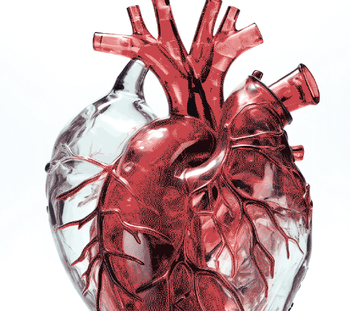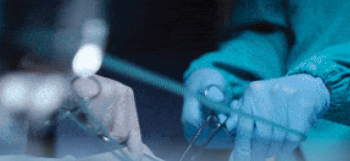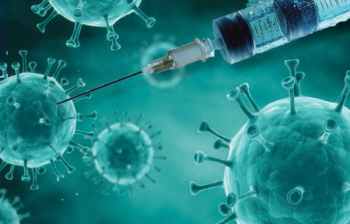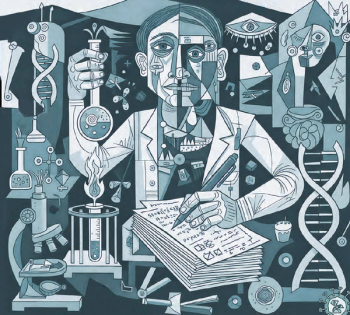
- April 2018
- Volume 3
- Issue 2
Should Early FMT Be First-Line Treatment for Severe CDI?
Given the impressive efficacy of fecal microbiota transplantation (FMT) on decreasing recurrence of Clostridium difficile infection (CDI), the next logical step is seeing how it works for hospitalized patients with CDI.
Given the impressive efficacy of fecal microbiota transplantation (FMT) on decreasing recurrence of Clostridium difficile infection (CDI), the next logical step is seeing how it works for hospitalized patients with CDI.1 A recent Clinical Infectious Diseases article by Hocquart et al describes a retrospective study of patients who received either medical treatment for CDI or treatment plus FMT in their hospital over 3 years.2
After work had shown that FMT improved survival in patients with CDI of the ribotype O273 and decreased recurrence and duration of symptoms, the infectious disease team at a hospital in Marseille, France, began to recommend early FMT for all hospitalized patients with CDI. They used this patient population for the retrospective study, which included 111 patients—66 who received FMT and medical therapy and 45 who received therapy alone. None had surgical intervention. The primary outcome was 3-month mortality. Severe colitis was defined to be leukocytes >15 g/L, albumin <30 g/L, serum creatinine >130 µmol/L or >1.5 times the baseline, peritonitis, occlusive syndrome, megacolon, or signs of shock. The 2 patient groups were largely similar, except all those in the FMT group received oral vancomycin for medical treatment, whereas some in the non-FMT group received metronidazole or fidaxomicin. The investigators found that early FMT reduced mortality in patients with severe CDI (odds ratio, 0.08; 95% CI, 0.016-0.34; P = .001) but not in cases classified as nonsevere.
With these conclusions, the authors recommended that early FMT should be first-line treatment in severe CDI. An accompanying editorial4 asked the question on most readers’ minds: Is it too early to recommend FMT without further trials? Hocquart et al provide a compelling argument that patients with severe CDI have a poor prognosis, FMT has a good safety profile (as far as we know), the benefit of this therapy could be vast, and surgery in a potential trial would be a poor control because certain patients would not be surgical candidates. However, it is still too early in FMT research to know what the long-term effects of FMT may be, and there is good reason that double-blind, randomized controlled multicenter trials should be considered before widely changing practice. The hope is that researchers will build off this work and hospitals will begin to add early FMT to the arsenal of weapons against CDI, along with improving antibiotic stewardship practices to avoid CDI altogether. For clinicians who have faced the tough situation of having a patient in the intensive care unit with severe CDI and few treatment options that seem to be working, this article serves as promising news. The literature awaits the next trial of early FMT in severe CDI patients.
References
- Cammarota G, Masucci L, Ianiro G, et al. Randomised clinical trial: faecal microbiota transplantation by colonoscopy vs. vancomycin for the treatment of recurrent Clostridium difficile infection. Alimet Pharmacol Ther. 2015;41(9):835-843. doi: 10.1111/apt.13144.
- Hocquart M, Lagier JC, Cassir N, et al. Early fecal microbiota transplantation improves survival in severe Clostridium difficile infections. Clin Infect Dis. 2018;66(5):645-650. doi: 10.1093/cid/cix762.
- Lagier JC, Delord M, Million M, et al. Dramatic reduction in Clostridium difficile ribotype 027-associated mortality with early fecal transplantation by the nasogastric route: a preliminary report. Eur J Clin Microbiol Infect Dis. 2015;34(8):1597-1601. doi: 10.1007/s10096-015-2394-x.
- Andremont A. Too early to recommend early fecal microbiota transplantation in patients with severe Clostridium difficile infection, or not too early? Clin Infect Dis. 2018;66(5):651-652. doi: 10.1093/cid/cix763.
Articles in this issue
almost 8 years ago
Arming Health Care Providers Against Growing Antimicrobial Resistancealmost 8 years ago
Pathogen and Treatment Paradigms for Multidrug-Resistant Infectionsalmost 8 years ago
Actively Involving Nurses in Antibiotic Stewardshipalmost 8 years ago
Drug-Resistant Gonorrhea and Other Emerging Issues in STIsalmost 8 years ago
Long-Acting Anti-MRSA Agents: One Dose to Cure?almost 8 years ago
HIV Drug Tenofovir Alafenamide Offers Safety, Noninferiority to AbacavirNewsletter
Stay ahead of emerging infectious disease threats with expert insights and breaking research. Subscribe now to get updates delivered straight to your inbox.

































































































































